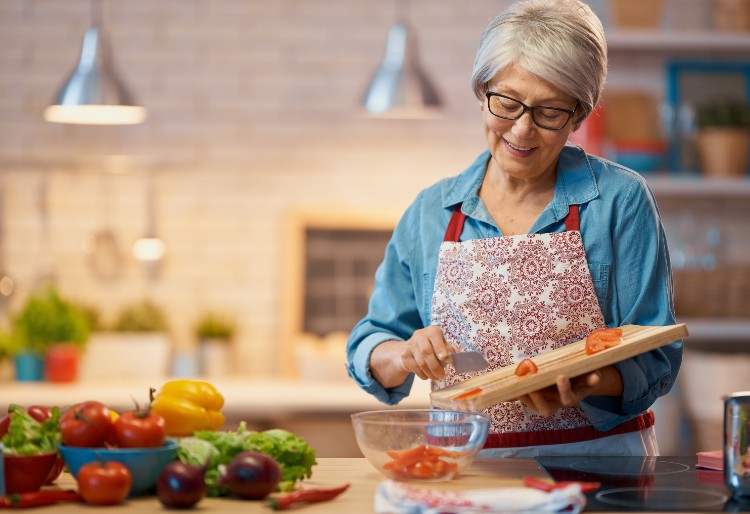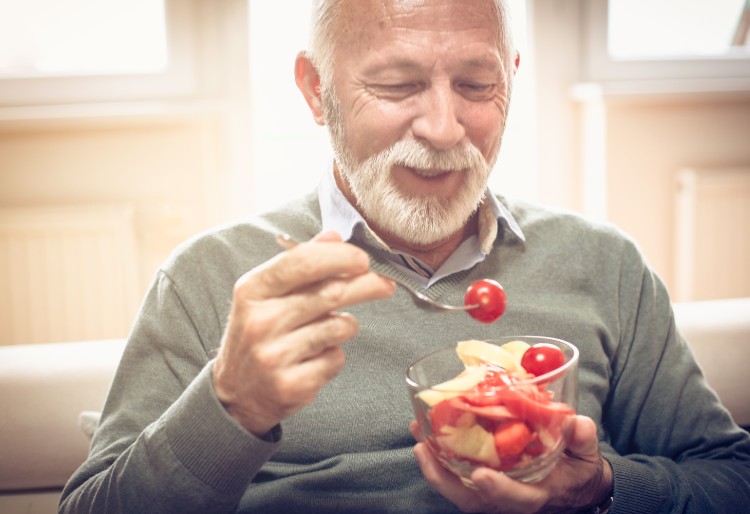Fresh products also at home
Shopping online is convenient, saves time and requires better planning. You can also enjoy fresh products also at home. Take note!
how to shop
Share

Our diet and nutritional requirements are not the same when we are young as when we are advancing in years. On a global level, there are around 600 million people over the age of 65 and, in 2050, it is forecast that this figure will reach 200 million. In Spain, people over 65 years of age make up 17% of the total population and the National Institute for Statistics foresees that, by 2050, this figure will be above 30%.
After a certain age, we begin to lose parts of our teeth and produce a reduced amount of salivation, something which impacts on how we chew our food. We also lose our appetite a little, as our sense of smell becomes weaker, the stomach empties more slowly and we have a greater feeling of satiety throughout the day. As older people tend to be more sedentary and less active, the body requires less energy. Some older people also have to take medication, such as anti-inflammatories or analgesics, which also have an influence on the appetite and impede nutrient absorption.
With these circumstances in mind, the ideal is to boost a healthy ageing through diet and a lifestyle to prevent the onset of illness, as well as becoming dependent.
What diet should ‘seniors’ follow?
- Carbohydrates (cereals, pasta, rice…) should make up around 50-60% of the total energy consumed.
- More fibre and water: we recommend eating between 25 and 30 grams of fibre each day, combining insoluble (whole cereals) and soluble (from fruit and vegetables) fibre, and drinking approximately two and a half litres of liquids, preferably water.
- Boost intake of vitamin D and calcium: with age, the skin synthesises up to 25% less vitamin D than when you are young, so there is more need to expose yourself to the sun, eat blue fish, egg yolk or whole milk, as a lack of this vitamin affects calcium absorption. For this reason, older people need a greater daily intake than adults: some 1.200 milligrams for men and 1.300 for women, that is, four or five glasses of milk.
- A balance between animal and vegetable proteins: we recommend eating around 1 – 1.25g/Kg by weight per day of proteins. Proteins should be balanced between those from animal sources (meat, fish, dairy and eggs) and vegetable sources (nuts, legumes and rice).

- Moderate your consumption of sugar (less than 10%) and salt (less than 6 g/day).
- Fats should provide some 25-30% of the energy within your diet, with mono and polyunsaturated fats predominating (chicken, sardine, herring, mackerel, tuna, bonito, salmon), and vegetable oils (olive, sunflower) should be used.
- Eat more fish than meat, and you can eat around 3 to 4 eggs per week. Dairy consumption should be 3 portions per day.
What can help older people at the supermarket?
The actual design of the supermarkets, where being nearby is prioritised, is a help to ‘seniors’ as, according to Asedas, the Spanish Association of Self-Service Distributors and Supermarkets, there is a supermarket for every 840 inhabitants. Having the supermarket nearby enables older people to walk there and to shop each day.
The characteristics they look for in the products they buy is that they are healthy and natural (fresh and form part of the Mediterranean diet), easy to prepare and to eat, of a more reduced volume and size and that they are a good price.
Additionally, the delivery service helps older people to shop. As do the new store designs, with wider and brighter aisles which make it easier to move along them. The signs with larger letters also help older people to find the foods they are looking for in the supermarket.






